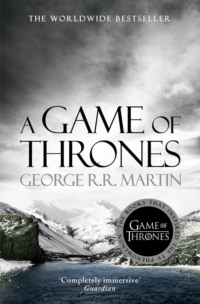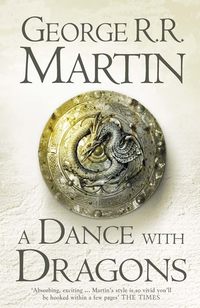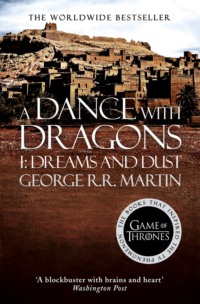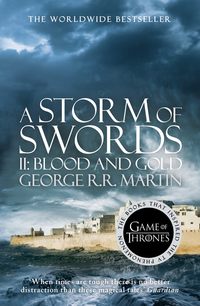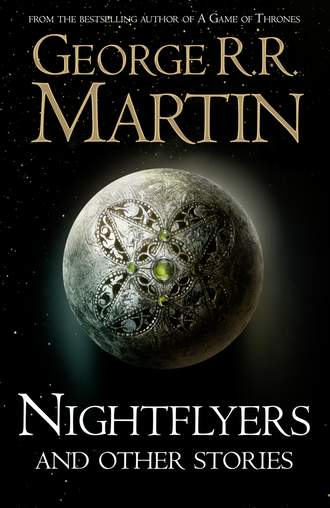
Полная версия
Nightflyers and Other Stories
“What is it?”
“Security,” said Lommie Thorne. “I’ll get through it in a second. Hold on.” She changed the keyboard yet again, entered another search program, attached on a rider in case it was blocked. Another screen flashed red. She had her machine chew the data she’d gathered, sent out another feeler. More red. Flashing. Blinking. Bright enough to hurt the eyes. All the screens were red now. “A good security program,” she said with admiration. “The log is well protected.”
Alys Northwind grunted. “Are we blocked?”
“Response time is too slow,” Lommie Thorne said, chewing on her lower lip as she thought. “There’s a way to fix that.” She smiled, and rolled back the soft black metal of her sleeve.
“What are you doing?”
“Watch,” she said. She slid her arm under the console, found the prongs, jacked in.
“Ah,” she said, low in her throat. The flashing red blocks vanished from her readout screens, one after the other, as she sent her mind coursing into the Nightflyer’s system, easing through all the blocks. “Nothing like slipping past another system’s security. Like slipping onto a man.” Log entries were flickering past them in a whirling, blurring rush, too fast for Alys Northwind to read. But Lommie read them.
Then she stiffened. “Oh,” she said. It was almost a whimper. “Cold,” she said. She shook her head and it was gone, but there was a sound in her ears, a terrible whooping sound. “Damn,” she said, “that’ll wake everyone.” She glanced up when she felt Alys’s fingers dig painfully into her shoulder, squeezing, hurting.
A grey steel panel slid almost silently across the access to the corridor, cutting off the whooping cry of the alarm. “What?” Lommie Thorne said.
“That’s an emergency airseal,” said Alys Northwind in a dead voice. She knew starships. “It closes where they’re about to load or unload cargo in vacuum.”
Their eyes went to the huge curving outer airlock above their heads. The inner lock was almost completely open, and as they watched it clicked into place, and the seal on the outer door cracked, and now it was open half a meter, sliding, and beyond was twisted nothingness so burning-bright it seared the eyes.
“Oh,” said Lommie Thorne, as the cold coursed up her arm. She had stopped whistling.
Alarms were hooting everywhere. The passengers began to stir. Melantha Jhirl tumbled from her sleepweb and darted into the corridor, nude, frantic, alert. Karoly d’Branin sat up drowsily. The psipsych muttered fitfully in drug-induced sleep. Rojan Christopheris cried out in alarm.
Far away metal crunched and tore, and a violent shudder ran through the ship, throwing the linguists out of their sleepwebs, knocking Melantha from her feet.
In the command quarters out of the Nightflyer was a spherical room with featureless white walls, a lesser sphere – a suspended control console – floating in its center. The walls were always blank when the ship was in drive; the warped and glaring underside of spacetime was painful to behold.
But now darkness woke in the room, a holoscope coming to life, cold black and stars everywhere, points of icy unwinking brilliance, no up and no down and no direction, the floating control sphere the only feature in the simulated sea of night.
The Nightflyer had shifted out of drive.
Melantha Jhirl found her feet again and thumbed on a communicator. The alarms were still hooting, and it was hard to hear. “Captain,” she shouted, “what’s happening?”
“I don’t know,” Royd’s voice replied. “I’m trying to find out. Wait.”
Melantha waited. Karoly d’Branin came staggering out into the corridor, blinking and rubbing his eyes. Rojan Christopheris was not long behind him. “What is it? What’s wrong?” he demanded, but Melantha just shook her head. Lindran and Dannel soon appeared as well. There was no sign of Marij-Black, Alys Northwind, or Lommie Thorne. The academicians looked uneasily at the seal that blocked cargo hold three. Finally Melantha told Christopheris to go look. He returned a few minutes later. “Agatha is still unconscious,” he said, talking at the top of his voice to be heard over the alarms. “The drugs still have her. She’s moving around, though. Crying out.”
“Alys and Lommie?”
Christopheris shrugged. “I can’t find them. Ask your friend Royd.”
The communicator came back to life as the alarms died. “We have returned to normal space,” Royd’s voice said, “but the ship is damaged. Hold three, your computer room, was breached while we were under drive. It was ripped apart by the flux. The computer dropped us out of drive automatically, fortunately for us, or the drive forces might have torn my entire ship apart.”
“Royd,” said Melantha, “Northwind and Thorne are missing.”
“It appears your computer was in use when the hold was breached,” Royd said carefully. “I would presume them dead, although I cannot say that with certainty. At Melantha’s request I have deactivated most of my monitors, retaining only the lounge input. I do not know what transpired. But this is a small ship, and if they are not with you, we must assume the worst.” He paused briefly. “If it is any consolation, they died swiftly and painlessly.”
“You killed them,” Christopheris said, his face red and angry. He started to say more, but Melantha slipped her hand firmly over his mouth. The two linguists exchanged a long, meaningful look. “Do we know how it happened, captain?” Melantha asked.
“Yes,” he said, reluctantly.
The xenobiologist had taken the hint, and Melantha took away her hand to let him breathe. “Royd?” she prompted.
“It sounds insane, Melantha,” his voice replied, “but it appears your colleagues opened the hold’s loading lock. I doubt they did so deliberately, of course. They were using the system interface to gain entry to the Nightflyer’s data storage and controls, and they shunted aside all the safeties.”
“I see,” Melantha said. “A terrible tragedy.”
“Yes. Perhaps more terrible than you think. I have yet to discover the extent of damage to my ship.”
“We should not keep you if you have duties to perform,” Melantha said. “All of us are shocked, and it is difficult to talk now. Investigate the condition of your ship, and we’ll continue our discussion at a more opportune time. Agreed?”
“Yes,” said Royd.
Melantha turned off the communicator. Now, in theory, the device was dead; Royd could neither see nor hear them.
“Do you believe him?” Christopheris snapped.
“I don’t know,” Melantha Jhirl said, “but I do know that the other cargo holds can all be flushed just as hold three was. I’m moving my sleepweb into a cabin. I suggest that those of you who are living in hold two do the same.”
“Clever,” Lindran said, with a sharp nod of her head. “We can crowd in. It won’t be comfortable, but I doubt that I’d sleep the sleep of angels in the holds after this.”
“We should also get our suits out of storage in four,” Dannel suggested. “Keep them close at hand. Just in case.”
“If you wish,” Melantha said. “It’s possible that all the locks might pop open simultaneously. Royd can’t fault us for taking precautions.” She flashed a grim smile. “After today we’ve earned the right to act irrationally.”
“This is no time for your damned jokes, Melantha,” Christopheris said. He was still red-faced, and his tone was full of fear and anger. “Three people are dead, Agatha is perhaps deranged or catatonic, the rest of us are endangered—”
“Yes. And we still have no idea what is happening,” Melantha pointed out.
“Royd Eris is killing us!” Christopheris shrieked. “I don’t know who or what he is and I don’t know if that story he gave us is true and I don’t care. Maybe he’s a Hrangan Mind or the avenging angel of the volcryn or the second coming of Jesus Christ. What the hell difference does it make? He’s killing us!” He looked at each of them in turn. “Any one of us could be next,” he added. “Any one of us. Unless … we’ve got to make plans, do something, put a stop to this once and for all.”
“You realize,” Melantha said gently, “that we cannot actually know whether the good captain has turned off his sensory inputs down here. He could be watching and listening to us right now. He isn’t, of course. He said he wouldn’t and I believe him. But we have only his word on that. Now, Rojan, you don’t appear to trust Royd. If that’s so, you can hardly put any faith in his promises. It follows therefore that from your own point of view it might not be wise to say the things that you’re saying.” She smiled slyly. “Do you understand the implications of what I’m saying?”
Christopheris opened his mouth and closed it again, looking very like a tall, ugly fish. He said nothing, but his eyes moved furtively, and his flush deepened.
Lindran smiled thinly. “I think he’s got it,” she said.
“The computer is gone, then,” Karoly d’Branin said suddenly in a low voice.
Melantha looked at him. “I’m afraid so, Karoly.”
D’Branin ran his fingers through his hair, as if half aware of how untidy he looked. “The volcryn,” he muttered. “How will we work without the computer?” He nodded to himself. “I have a small unit in my cabin, a wrist model, perhaps it will suffice. It must suffice, it must. I will get the figures from Royd, learn where we have dropped out. Excuse me, my friends. Pardon, I must go.” He wandered away in a distracted haze, talking to himself.
“He hasn’t heard a word we’ve said,” Dannel said, incredulous.
“Think how distraught he’d be if all of us were dead,” added Lindran. “Then he’d have no one to help him look for volcryn.”
“Let him go,” Melantha said. “He is as hurt as any of us, maybe more so. He wears it differently. His obsessions are his defense.”
“Ah. And what is our defense?”
“Patience, maybe,” said Melantha Jhirl. “All of the dead were trying to breach Royd’s secret when they died. We haven’t tried. Here we are discussing their deaths.”
“You don’t find that suspicious?” asked Lindran.
“Very,” Melantha said. “I even have a method of testing my suspicions. One of us can make yet another attempt to find out whether our captain told us the truth. If he or she dies, we’ll know.” She shrugged. “Forgive me, however, if I’m not the one who tries. But don’t let me stop you if you have the urge. I’ll note the results with interest. Until then, I’m going to move out of the cargo hold and get some sleep.” She turned and strode off, leaving the others to stare at each other.
“Arrogant bitch,” Dannel observed almost conversationally after Melantha had left.
“Do you really think he can hear us?” Christopheris whispered to the two linguists.
“Every pithy word,” Lindran said. She smiled at his discomfiture. “Come, Dannel, let’s get to a safe area and back to bed.”
He nodded.
“But,” said Christopheris, “we have to do something. Make plans. Defenses.”
Lindran gave him a final withering look, and pulled Dannel off behind her down the corridor.
“Melantha? Karoly?”
She woke quickly, alert at the mere whisper of her name, fully awake almost at once, and sat up in the narrow single bed. Squeezed in beside her, Karoly d’Branin groaned and rolled over, yawning.
“Royd?” she asked. “Is it morning?”
“We are drifting in interstellar space three light years from the nearest star, Melantha,” replied the soft voice from the walls. “In such a context, the term morning has no meaning. But, yes, it is morning.”
Melantha laughed. “Drifting, you said? How bad is the damage?”
“Serious, but not dangerous. Hold three is a complete ruin, hanging from my ship like half of a broken egg, but the damage was confined. The drives themselves are intact, and the Nightflyer’s computers did not seem to suffer from your system’s destruction. I feared they might. I have heard of phenomena like electronic death traumas.”
D’Branin said, “Eh? Royd?”
Melantha stroked him affectionately. “I’ll tell you later, Karoly,” he said. “Go back to sleep. Royd, you sound serious. Is there more?”
“I am worried about our return flight, Melantha,” Royd said. “When I take the Nightflyer back into drive, the flux will be playing directly on portions of the ship that were never engineered to withstand it. Our configurations are askew now; I can show you the mathematics of it, but the question of the flux forces is the vital one. The airseal across the access to hold three is a particular concern. I’ve run some simulations, and I don’t know if it can take the stress. If it bursts, my whole ship will split apart in the middle. My engines will go shunting off by themselves, and the rest – Even if the life support sphere remains intact, we will all soon be dead.”
“I see. Is there anything we can do?”
“Yes. The exposed areas would be easy enough to reinforce. The outer hull is armored to withstand the warping forces, of course. We could mount it in place, a crude shield, but according to my projections it would suffice. If we do it correctly, it will help correct our configurations as well. Large portions of the hull were torn loose when the locks opened, but they are still out there, most within a kilometer or two, and could be used.”
At some point Karoly d’Branin had finally come awake.
“My team has four vacuum sleds,” he said. “We can retrieve those pieces for you, my friend.”
“Fine, Karoly, but that is not my primary concern. My ship is self-repairing within certain limits, but this exceeds those limits by an order of magnitude. I will have to do this myself.”
“You?” D’Branin was startled. “Royd, you said – that is, your muscles, your weakness – this work will be too much for you. Surely we can do this for you!”
Royd’s reply was tolerant. “I am only a cripple in a gravity field, Karoly. Weightless, I am in my element, and I will be killing the Nightflyer’s gravity grid momentarily, to try to gather my own strength for the repair work. No, you misunderstand. I am capable of the work. I have the tools, including my own heavy-duty sled.”
“I think I know what you are concerned about, captain,” Melantha said.
“I’m glad,” Royd said. “Perhaps then you can answer my question. If I emerge from the safety of my chambers to do this work, can you keep your colleagues from harming me?”
Karoly d’Branin was shocked. “Oh, Royd, Royd, how could you think such a thing? We are scholars, scientists, not – not criminals, or soldiers, or – or animals, we are human, how can you believe we would threaten you or do you harm?”
“Human,” Royd repeated, “but alien to me, suspicious of me. Give me no false assurances, Karoly.”
He sputtered. Melantha took him by the hand and bid him quiet. “Royd,” she said, “I won’t lie to you. You’d be in some danger. But I’d hope that, by coming out, you’d make our friends joyously happy. They’d be able to see that you told the truth, see that you were only human.” She smiled. “They would see that, wouldn’t they?”
“They would,” Royd said, “but would it be enough to offset their suspicions? They believe I am responsible for the deaths of the other three, do they not?”
“Believe is too strong a word. They suspect it, they fear it. They are frightened, captain, and with good cause. I am frightened.”
“No more than I.”
“I would be less frightened if I knew what did happen. Will you tell me?”
Silence.
“Royd, if—”
“I have made mistakes, Melantha,” Royd said gravely. “But I am not alone in that. I did my best to stop the esperon injection, and I failed. I might have saved Alys and Lommie if I had seen them, heard them, known what they were about. But you made me turn off my monitors, Melantha. I cannot help what I cannot see. Why? If you saw three moves ahead, did you calculate these results?”
Melantha Jhirl felt briefly guilty. “Mea culpa, captain, I share the blame. I know that. Believe me, I know that. It is hard to see three moves ahead when you do not know the rules, however. Tell me the rules.”
“I am blind and deaf,” Royd said, ignoring her. “It is frustrating. I cannot help if I am blind and deaf. I am going to turn on the monitors again, Melantha. I am sorry if you do not approve. I want your approval, but I must do this with or without it. I have to see.”
“Turn them on,” Melantha said thoughtfully. “I was wrong, captain. I should never have asked you to blind yourself. I did not understand the situation, and I overestimated my own power to control the others. A failing of mine. Improved models too often think they can do anything.” Her mind was racing, and she felt almost sick; she had miscalculated, misled, and there was more blood on her hands. “I think I understand better now.”
“Understand what?” Karoly d’Branin said, baffled.
“You do not understand,” Royd said sternly. “Don’t pretend that you do, Melantha Jhirl. Don’t! It is not wise or safe to be too many moves ahead.” There was something disturbing in his tone.
Melantha understood that too.
“What?” Karoly said. “I do not understand.”
“Neither do I,” Melantha said carefully. “Neither do I, Karoly.” She kissed him lightly. “None of us understand, do we?”
“Good,” said Royd.
She nodded, and put a reassuring arm around Karoly. “Royd,” she said, “to return to the question of repairs, it seems to me you must do this work, regardless of what promises we can give you. You won’t risk your ship by slipping back into drive in your present condition, and the only other option is to drift out here until we all die. What choice do we have?”
“I have a choice,” Royd said with deadly seriousness. “I could kill all of you, if that were the only way to save myself and my ship.”
“You could try,” Melantha said.
“Let us have no more talk of death,” d’Branin said.
“You are right, Karoly,” Royd said. “I do not wish to kill any of you. But I must be protected.”
“You will be,” Melantha said. “Karoly can set the others to chasing your hull fragments. I’ll be your protection. I’ll stay by your side. If anyone tries to attack you, they’ll have to deal with me. They won’t find that easy. And I can assist you. The work will be done three times as fast.”
Royd was polite. “It is my experience that most planet-born are clumsy and easily tired in weightlessness. It would be more efficient if I worked alone, although I will gladly accept your services as a bodyguard.”
“I remind you that I’m the improved model, captain,” Melantha said. “Good in free fall as well as in bed. I’ll help.”
“You are stubborn. As you will, then. In a few moments I shall depower the gravity grid. Karoly, go and prepare your people. Unship your vacuum sleds and suit up. I will exit the Nightflyer in three standard hours, after I have recovered from the pains of your gravity. I want all of you outside the ship before I leave. Is that condition understood?”
“Yes,” said Karoly. “All except Agatha. She has not regained consciousness, friend, she will not be a problem.”
“No,” said Royd, “I meant all of you, including Agatha. Take her outside with you.”
“But Royd!” protested d’Branin.
“You’re the captain,” Melantha Jhirl said firmly. “It will be as you say; all of us outside. Including Agatha.”
Outside. It was as though some vast animal had taken a bite out of the stars.
Melantha Jhirl waited on her sled close by the Nightflyer, and looked at stars. It was not so very different out here in the depths of interstellar space. The stars were cold, frozen points of light; unwinking, austere, more chill and uncaring somehow than the same suns made to dance and twinkle by an atmosphere. Only the absense of a landmark primary reminded her of where she was: in the places between, where men and women and their ships do not stop, where the volcryn sail crafts impossibly ancient. She tried to pick out Avalon’s sun, but she did not know where to search. The configurations were strange to her and she had no idea of how she was oriented. Behind her, before her, above, all around, the starfields stretched endlessly. She glanced down, or what seemed like down just then, beyond her feet and her sled and the Nightflyer, expecting still more alien stars. And the bite hit her with an almost physical force.
Melantha fought off a wave of vertigo. She was suspended above a pit, a yawning chasm in the universe, black, starless, vast.
Empty.
She remembered then: the Tempter’s Veil. Just a cloud of dark gases, nothing really, galactic pollution that obscured the light from the stars of the Fringe. But this close at hand, it seemed immense, terrifying, and she had to break her gaze when she began to feel as if she were falling. It was a gulf beneath her and the frail silver-white shell of the Nightflyer, a gulf about to swallow them.
Melantha touched one of the controls on the sled’s forked handle, swinging around so the Veil was to her side instead of beneath her. That seemed to help somehow. She concentrated on the Nightflyer, ignoring the looming wall of blackness beyond. It was the largest object in her universe, bright amid the darkness, ungainly, its shattered cargo sphere giving the whole craft an unbalanced cast.
She could see the other sleds as they angled through the black, tracking the missing pieces of hull, grappling with them, bringing them back. The linguistic team worked together, as always, sharing a sled. Rojan Christopheris was alone, working in a sullen silence. Melantha had almost had to threaten him with physical violence before he agreed to join them. The xenobiologist was certain that it was all another plot, that once they were outside the Nightflyer would slip into drive without them and leave them to lingering deaths. His suspicions were inflamed by drink, and there had been alcohol on his breath when Melantha and Karoly had finally forced him to suit up. Karoly had a sled too, and a silent passenger; Agatha Marij-Black, freshly drugged and asleep in her vacuum suit, safely locked into place.
While her colleagues labored, Melantha Jhirl waited for Royd Eris, talking to the others occasionally over the comm link. The two linguists, unaccustomed to weightlessness, were complaining a good deal, and bickering as well. Karoly tried to soothe them frequently. Christopheris said little, and his few comments were edged and biting. He was still angry. Melantha watched him flit across her field of vision, a stick figure in form-fitting black armor standing erect at the controls of his sled.
Finally the circular airlock atop the foremost of the Nightflyer’s major spheres, dilated, and Royd Eris emerged.
She watched him approach, curious, wondering what he would look like. In her mind were a half-dozen contradictory pictures. His genteel, cultured, too-formal voice sometimes reminded her of the dark aristocrats of her native Prometheus, the wizards who toyed with human genes and played baroque status games. At other times his naivete made her imagine him as an inexperienced youth. His ghost was a tired-looking thin young man, and he was supposed to be considerably older than that pale shadow, but Melantha found it difficult to hear an old man talking when he spoke.
Melantha felt a nervous tingle as he neared. The lines of his sled and his suit were different than theirs, disturbingly so. Alien, she thought, and quickly squelched the thought. Such differences meant nothing. Royd’s sled was large, a long oval plate with eight jointed grappling arms bristling from its underside like the legs of a metallic spider. A heavy-duty cutting laser was mounted beneath the controls, its snout jutting threateningly forward. His suit was far more massive than the carefully engineered Academy worksuits they wore, with a bulge between its shoulder blades that was probably powerpack, and rakish radiant fins atop shoulders and helmet. It made him seem hulking; hunched and deformed.
But when he finally came near enough for Melantha to see his face, it was just a face.
White, very white, that was the predominant impression she got; white hair cropped very short, a white stubble around the sharply chiseled lines of his jaw, almost invisible eyebrows beneath which his eyes moved restlessly. His eyes were large and vividly blue, his best feature. His skin was pale and unlined, scarcely touched by time.
He looked wary, she thought. And perhaps a bit frightened.


